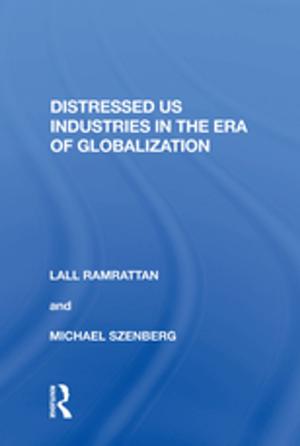Party-Society Relations in the Republic of Cyprus
Political and Societal Strategies
Nonfiction, Social & Cultural Studies, Political Science, Government, Social Science| Author: | ISBN: | 9781317386568 | |
| Publisher: | Taylor and Francis | Publication: | November 19, 2015 |
| Imprint: | Routledge | Language: | English |
| Author: | |
| ISBN: | 9781317386568 |
| Publisher: | Taylor and Francis |
| Publication: | November 19, 2015 |
| Imprint: | Routledge |
| Language: | English |
The Republic of Cyprus’ social and political culture is deeply partitocratic, with a close relationship between state apparatus and the parties that influence the government’s decisions. However, little is known about the social and political implications of the above traits, and even less about how parties influence and are influenced by society at large.
The concept of linkage, which refers to the linking of citizens with government and the political process, is vital in the study of the electoral or ideological considerations of parties. Parties’ decisions regarding their organization and image correlates with the effort made to keep up with public opinion. Party-Society Relations in the Republic of Cyprus adds a new dimension to the study of linkage, considering the complexity of civil society as well as exploring the dynamics of political parties. Bringing together specialists from a range of disciplines, it examines the wider effects of partitocracy on democracy and uses it as a frame for exploring the construction, maintenance or deformation of links between social groups and parties. Through its analysis of both the partisan and societal aspects of party-social relations, it illuminates larger questions concerning the strategic complexity involved when politics and society interact.
Approaching the Republic of Cyprus as a representative case study of partitocratic political culture, this book is a key resource for those interested in party and civil society politics, as well as Cypriot, Mediterranean and South-East European politics.
The Republic of Cyprus’ social and political culture is deeply partitocratic, with a close relationship between state apparatus and the parties that influence the government’s decisions. However, little is known about the social and political implications of the above traits, and even less about how parties influence and are influenced by society at large.
The concept of linkage, which refers to the linking of citizens with government and the political process, is vital in the study of the electoral or ideological considerations of parties. Parties’ decisions regarding their organization and image correlates with the effort made to keep up with public opinion. Party-Society Relations in the Republic of Cyprus adds a new dimension to the study of linkage, considering the complexity of civil society as well as exploring the dynamics of political parties. Bringing together specialists from a range of disciplines, it examines the wider effects of partitocracy on democracy and uses it as a frame for exploring the construction, maintenance or deformation of links between social groups and parties. Through its analysis of both the partisan and societal aspects of party-social relations, it illuminates larger questions concerning the strategic complexity involved when politics and society interact.
Approaching the Republic of Cyprus as a representative case study of partitocratic political culture, this book is a key resource for those interested in party and civil society politics, as well as Cypriot, Mediterranean and South-East European politics.















